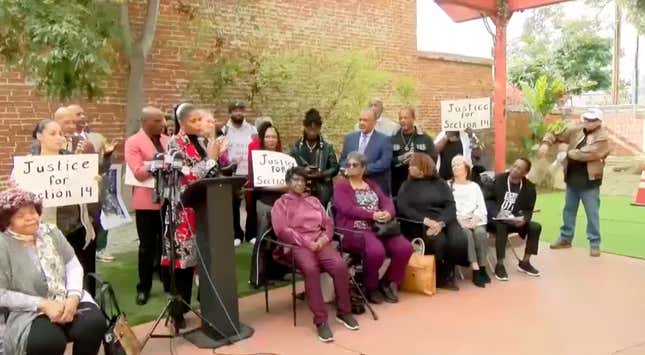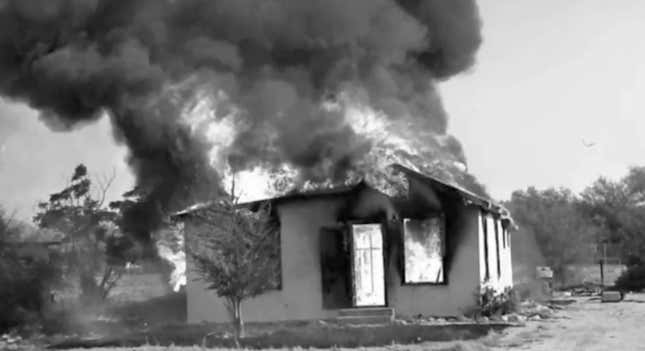
As talk of reparations for the descendants of slaves continues to be a hot-button issue around the country, some Black and Latino families in Palm Springs, Calif., who lost their homes decades ago, are preparing to receive a multi-million dollar settlement from the city.
On Nov. 14, the Palm Springs city council approved a $5.9 million settlement for families whose homes in the Section 14 neighborhood were violently destroyed by the city in the 1950s and 60s in a manner resembling the Tulsa Massacre of 1921, according to The Los Angeles Times.
According to the settlement terms, families of Section 14 residents will be paid based on the current value of the property they lost due to the city’s actions. The city council also approved a day of remembrance honoring members of the community, The Times reports.
Section 14 was a square mile of land on a Native American reservation in Palm Springs. Many Black and Latino families made homes there as housing policies put in place by the city in the early 1900s prevented them from buying or renting in other predominately white areas of the city.
But as working families of color who built a vibrant community filled with homes, businesses and houses of worship, the city took steps to destroy it in the 1950s, using city employees and private companies to burn their properties down.

In addition to compensating families, the city will invest in housing and business initiatives designed to uplift underserved communities including those impacted by Section 14's destruction. The city of Palm Springs issued an apology to the victims, but this is the first time they’ve approved compensating the families.
“It is the responsibility of the city of Palm Springs to compensate individuals for the destruction of personal property,” Councilmember Lisa Middleton said at the Nov. 14 city council meeting . “We broke something that was yours, and now we need to pay for it.”
Many of the victims have passed away, but survivors say the settlement is an important part of the healing process.
“While no amount of money can fully restore what we lost, this agreement helps pave the way for us all to finally move forward,” said Pearl Devers, who lived in Section 14 until she was 12, in a statement.
Addressing the attendees of Thursday’s meeting, Palm Springs Mayor Jeffrey Bernstein agreed that “no amount of money” can right the wrongs that have already been committed.
“What we can do is we can heal and move forward, and we can look at restorative justice,” he said.

